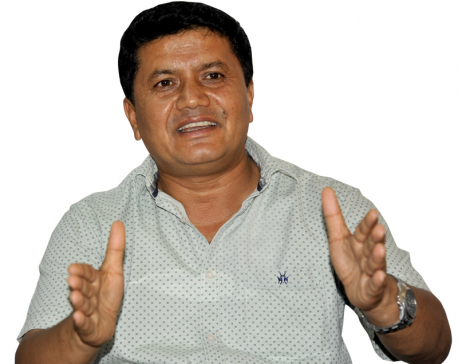
OR
Replacing small vehicles
Although a little late, the government decision to replace small public vehicles (like tempos and microbuses) in Kathmandu with large buses is the right one. The city roads were getting far too crowded, the expanded road sections seemingly serving only to pack in more vehicles. Sajha Yatayat, a cooperative, has already shown that it is possible for people to travel about the valley both cheaply and in relative comfort. Its buses are not only spacious. They also run on time. In a country where most public infrastructures are out of reach of the disabled, Sajha is again a welcome exception with its disabled-friendly buses. Following Sajha’s lead, Mahanagar Yatayat, a private company that also operates buses in Kathmandu, is now adding 40 new eco- and disabled-friendly buses to its fleet.
What is new about both these bus services is that rather than pure utility they also have passenger comfort in mind. They are giving a strong social message that you need not travel in discomfort just because you can’t afford private vehicles or the expensive (and exploitative) taxis.
Along with removing small public vehicles, which the Department of Transport Management will start doing at March-end, the department is also reportedly working on removing from valley roads all vehicles, both private and public, that are more than 20 years old. This measure, considered by successive governments but never actually implemented, was also overdue. Again, the valley has just too many vehicles, and anecdotal evidence suggests that most of them are dirty, belching great amounts of toxic substances. We can only hope the government is serious this time. But this won’t be enough. There is currently no way to gauze the amount of toxins that vehicles are putting out through their exhaust. The green “pollution free” stickers they so proudly sport are openly available in the black market. Even if some vehicle owners want to test their vehicles for polluting substances they presently can’t do so because the only machine in the valley that can perform such tests has been out of order for the past four years. This alone is enough to show how serious successive governments, of every imaginable political stripe, have been about giving their citizens a healthy air to breathe, which should in fact be their inalienable right.
Along with this, the haphazard road widening campaign and other on-the-road public works could be better managed. Otherwise there will be no respite for valley denizens from the plumes of dust they have had to inhale in copious amounts in the past year or so. Whether it’s the Department of Roads looking to widen the roads or the workers of the Melamchi Drinking Water project digging up perfectly good black tops, they should first complete their work in a particular stretch before moving on to the next stretch. The random digs are greatly inconveniencing the people. We believe that, with a bit more political commitment, it is possible to have a clean, reliable and cheap public transport system in Kathmandu, so much so that even those who already own private vehicles consider selling them.
You May Like This

Not so big fish in a big pond
Krishna Prasad Sigdel’s book reads like a primer on Nepal’s foreign policy and international affairs. It also deals with the... Read More...

"Today's need is a big project for the conservation of Fewa Lake"
Republica's Prashant Lamichhane talked to Rabindra Adhikari, the president of the Parliament's Development Committee about Fewa Lake encroachment: ... Read More...

Meryl Streep is not an ‘overrated actor’ Donald Trump, she is the most decorated
President-elect Donald Trump took to Twitter on Monday, calling Meryl Streep “one of the most over-rated actresses in Hollywood” following... Read More...



Just In
- World Malaria Day: Foreign returnees more susceptible to the vector-borne disease
- MoEST seeks EC’s help in identifying teachers linked to political parties
- 70 community and national forests affected by fire in Parbat till Wednesday
- NEPSE loses 3.24 points, while daily turnover inclines to Rs 2.36 billion
- Pak Embassy awards scholarships to 180 Nepali students
- President Paudel approves mobilization of army personnel for by-elections security
- Bhajang and Ilam by-elections: 69 polling stations classified as ‘highly sensitive’
- Karnali CM Kandel secures vote of confidence















Leave A Comment